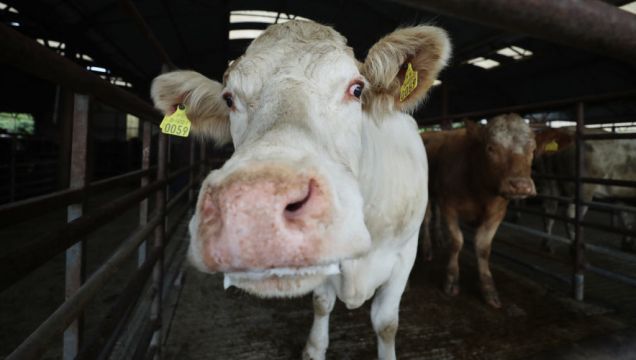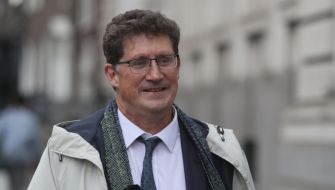Minister for Transport and Green Party leader Eamon Ryan has said that it is unlikely that the national herd will have to be culled.
The reduction in numbers is likely to occur naturally, he told RTÉ radio’s Today with Claire Byrne show.
Mr Ryan also said that energy blackouts were less likely to occur as a number of plants that were out of commission had been restored. The situation now was “not quite as tight”, but he acknowledged that power outages could not be ruled out.
Mr Ryan was commenting on the two five year carbon budget plans announced by the Climate Change Advisory Council.
The budgets are part of the long-term strategy to make Ireland carbon-neutral by 2050.
Minister @EamonRyan has welcomed the first carbon budgets from the Climate Change Advisory Council as a significant milestone in Ireland’s efforts to tackle climate change.
Read more: https://t.co/QfoLSIacwA #ClimateActionIRLAdvertisement— Dept. Environment, Climate and Communications (@Dept_ECC) October 25, 2021
“It would be an ongoing process that would evolve,” he explained.
Next week the Government is to publish a draft response that would then be debated in the Oireachtas. There would need to be cooperation between the opposition, stakeholders, and society, added Mr Ryan.
Monitoring
According to Mr Ryan, the advantage of five year budgets would be that they would allow the situation to be monitored, so it could be seen what needed to be changed.
All the parties involved will need to assess the proposals and different sectors will require different changes.
Transport will be the most difficult sector as it will require 50 percent reduction in emissions, energy will also require a significant reduction, Mr Ryan said.
The high cost of fossil fuel and reliance on other countries for supply highlighted how it would be better to “tap into our own power sources”. That would be more competitive and mean more control.
The cost of electric vehicles will come down in the next two years, said Mr Ryan, but there was a need to move public transport services closer to people while remote working would reduce the need to commute.
Mr Ryan also said that the change in farming would take the most time, but that this was an opportunity for the new generation of farmers to try new methods that would protect the land.
He also mentioned Ireland’s food export sector had the advantage of being green, but if it was not truly green then the sector would be in danger.
“Irish people are up for it”, said Mr Ryan.
Challenging
Speaking about the herd size, Marie Donnelly, chairwoman of the Climate Change Advisory Council, said Ireland will need to look “very seriously” at the issue.
“Our herd is very large – it’s more than our population of people. And it is going to be a challenge. It’s one that we’re going to have to look at very seriously.”
The target for reducing greenhouse gas emissions is lower in the first period – 4.8 per cent per year – than in the second period – 8.3 per cent per year.
Ms Donnelly said: “The action takes place now and the benefit will come through in the second budget.”
She told RTÉ radio: “It is the Government that decides the sector ceilings and that’s the process that will now deliver in the course of the next number of weeks and months. What we have looked at in terms of the modelling exercise is what is the stress possibility in each of the sectors?
“What is feasible? What is unfeasible?”
There has been considerable discussion about the reforms necessary in agriculture in the coming years.
“Analyse the emissions coming from the agricultural sector and there are three kinds of gases,” Ms Donnelly said.
“There’s carbon dioxide, the same as the rest of us – diesel and petrol in tractors. So that’s one area, clearly, that is the same for everybody in our society.
“The secondary is nitrous oxide, which is a very long-lived, warming gas. And that’s coming from our fertilizer and our slurry. And this is not a new message. We have an issue there. Our water quality is being impaired by the run-off, and this is something that has already been tackled in the agriculture sector.
“So it’s from a water purity perspective but also from an emissions perspective – we get a double benefit out of taking action in that space. Methane, of course, comes from cattle and from sheep. At the moment, our methane emissions are increasing, they’re going in the wrong direction.
“There are certain technology and feeding practices that can help on that. But we may have to deal with a very difficult issue of linking activity to activity levels in agriculture to methane emissions, and addressing that as a serious challenge.”







